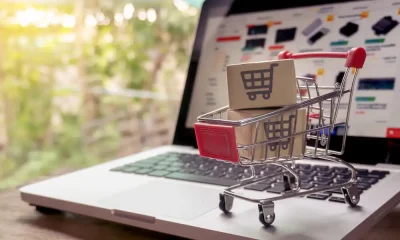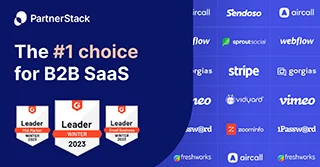Management
Starting Out as a Freelancer
Freelancing is a viable option for anyone who wants to work from home and make extra money. But it’s not for everyone. If you’re not comfortable working without guaranteed hours, you might not be a good fit for freelancing. And you’ll also need to be ready to handle the uncertainty that comes with freelance work.
One of the biggest challenges with freelancing is finding clients. You can’t just post a job ad on Craigslist and expect a flood of responses. It takes effort and networking to find clients looking for freelancers like you. These days, building a website and social media presence is important so people can find you easily.
While freelancing can be rewarding, it doesn’t come without its risks. If you’re not careful, you could end up stuck in low-paying contract work that never leads to long-term stability or growth. So it’s important to keep your eye on the prize and stay focused on your long-term goals while freelancing.
Being your own boss as a freelancer is hard work yet exciting. You need to know how to:
- Set up a legal tax entity
- Create online digital assets
- Digital marketing basics
- Network and collaborate
- Stay relevant within your niche
Legal entity
Setting up a legal entity for your freelancing business requires knowledge of the business structures. You can hire an accountant to manage this task for you, but you should also know the basics of business structures. We have a business blog post the topic of business structures for you.
In short, there are four structures for businesses, including:
- LLC – Limited Liability Company
- Partnerships
- C Corporation
- S Corporation
Start off on the right path legally before you need to file your tax return, so there are no hidden surprises like penalties later on.
Create Online Assets
You will look more professional with your own website. It may seem overkill right now, but when you compete for a top job, your website will reward you later. Make sure you hire a web designer and developer who knows a thing or two about SEO and be sure to insist on your site, including a blog, so you can keep your visitors informed on topics relevant to your expertise.
Social Media
Some freelancers may just go with a Facebook page or Linkedin profile instead of having a website. You can do either; however, remember you don’t own social media networks, but you will own your website. If something happens to your pages on social media, you can revert back to your website and direct businesses keen to hire you to it for more information.
On social media, be professional – one false move with a post that is deemed dubious, and there goes your reputation that could cost you a role. Commit this saying to memory: What goes online – stays online. See this business blog article on how to fix social media mistakes.
Marketing
Today, your ability to market effectively is paramount to your success as a freelancer. You can have the best skills in your particular area of expertise worldwide. Still, if you can’t market yourself effectively, nobody will know who you are – let alone have a compelling reason to do business with you!
If you’re new to online marketing, it’s understandable that you might feel somewhat overwhelmed. For example, there are so many things to learn about from search engine optimization to cost-effective B2B lead generation that you might feel so bamboozled you don’t know where to begin.
For this reason, we’re going to look at five simple strategies that you can get started with straight away that don’t require you to have a degree in digital marketing while you set yourself up as the most important thing to any business is to get orders.
1. Focus on a particular niche
It can be tempting to purport to serve everyone, but this can come across like being a jack of all trades, as most people like to do business with someone they view as an expert within a particular field. Therefore, rather than promote yourself as someone that dabbles or tinkers in their craft, it would be better to position yourself as an expert within a clearly defined niche.
The further benefit is that it will significantly reduce your marketing cost if you focus your ad campaigns and keywords on more niche-focused terms. For instance, “graphic design” is a lot more competitive than “graphic design for boutique hotels”.
2. Network, network, network
In the age of social media, it would appear redundant to attend networking events in person, as everything is now done online. Yet, it’s important to remember that people buy people. Today, we focus much more on developing our online personas via Facebook and Instagram than interacting with people in the flesh. Still, if you want to make a good impression (bearing in mind people often buy ‘people’ more than the service that you provide) you need to get out there and make some connections.
3. Word of mouth
If you can remember back to the days before Netflix, you would wander down to Blockbuster and pick out a video for the night from a plethora of options. Imagine that someone you know and trust recommends a film they know you’ll love – the chances are, you’ll check that film out. Similarly, we tend to go with their recommendations when people we know and trust recommend service providers, such as web designers.
There is a lot of social proof from online reviews, testimonials, and social media ‘likes’. However, don’t forget people do business with people.
Encouraging satisfied customers to spread the word about you, and incentivizing them with a discount on future jobs usually is all the motivation they need to provide a review or testimonial.
Leverage Freelancing Platforms
There are many freelancing job sites where you can set up a profile, including freelancer.com, Upwork and Linkedin. Consider registering for the sites that attract businesses seeking your skills, including offshore or global sites. As a freelancer, you can accept offshore remote working roles, opening up your client base and the potential to make more money.
Online Payments
To accept a freelancing role with an offshore business, you must organize payment of your invoices. A global payment gateway like PayPal or Payoneer will make the payment process easier and in your desired currency, which may be US dollars or British pounds.
Summing Up
In summary, with the future of work evolving, freelancing is popular. When you work for yourself, you have more responsibilities, including ensuring you pay your taxes and find work. To compete you need to have online assets like a website or a professional presence on social media. Plus, you need to know how to remain relevant and grow in your career. Training and education are your responsibility as a freelancer.
The future is bright for employees that have made the transition to freelancing.









